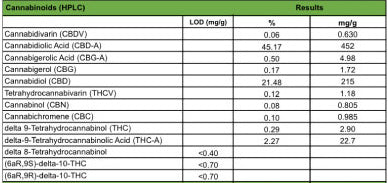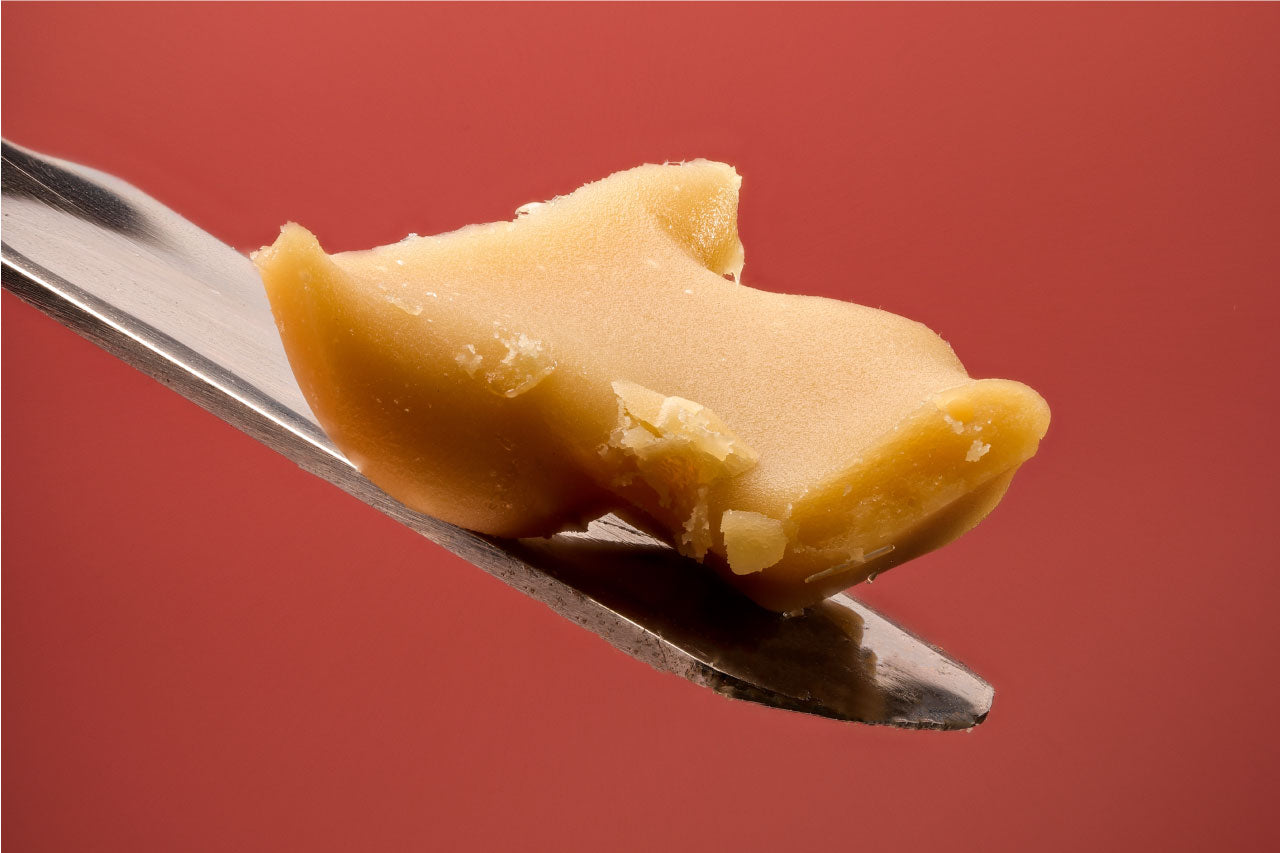What is a Certificate of Analysis?
A certificate of analysis, or COA for short, is a document that contains lab results from a tested sample of cannabis/hemp plant material. This sample can be flower, concentrates, pre rolls, edible products, etc.
Are There Different Types of COA’s?
Yes. Hemp & CBD products can be tested for many different things from cannabinoid potency to residual solvents. The most common types of COA’s that you will see are cannabinoid potency, terpene profile, heavy metals, residual solvents, and microbials. Ideally you want to see each of these tests for a product before purchasing, but as many new companies are trying to make their way into the industry on a budget, they don’t always have the extra capital to cover the costs of extra labs which can be quite pricey.
If these extra labs are not available and you are still intent on buying the product, try to ensure the company is trustworthy and that they put integrity over profits.
Reading the COA
The most common COA is a cannabinoid potency test. These lab results will display a list of different cannabinoids that have been tested for. These will usually be in a column on the left side of the COA.

In two columns to the right of this list, you will usually see a ‘%’ in one of the columns, and ‘mg/g’ in the other column. The ‘%’ column is the percentage of the cannabinoid that has been found in the sample. The ‘mg/g’ is the total milligrams of the cannabinoid present per gram of the sample material.
On other types of COA’s the layout is quite similar, but instead of testing for cannabinoid levels other variables are tested for such as terpenes, heavy metals, or residual solvents.
Total THC & Total CBD
Towards the bottom of the COA there will generally be a ‘Total Cannabinoids’ column with a percentage listed. This percentage is the sum of all the cannabinoids present in the sample material.

In addition to total cannabinoids, you will also see a ‘Total THC’ column with a percentage of the total amount of THC in the sample listed. ‘Total THC’ is calculated by adding the percentage of Delta-9 THC to the percentage of THCa multiplied by 0.877. Total THC = (D9 + (THCa*0.877)
Total CBD will also be listed, and this percentage is found using the same equation used to find total THC, but the CBD and CBDa percentages are used. Total CBD = (CBD + (CBDa*0.877)
Why are THCa and CBDa multiplied by 0.877? Because THCa converts to THC, and CBDa converts to CBD, these molecules must be factored into the total THC & CBD percentages for an accurate analysis of the cannabinoid levels in each sample. The problem is the acidic forms of THC & CBD weigh more than their nonacidic forms.
Simply adding the THCa percentage to the THC percentage would result in a higher percentage that wouldn’t be quite accurate. Multiplying the acidic molecules by 0.877 allows us to account for the loss in mass that occurs when the molecules convert to THC & CBD, giving us a true ‘Total THC’ and ‘Total CBD’ analysis.
LOQ, ND, & LOD

In many cases you will see “LOQ” and/or “ND” listed next to a particular variable on the COA. It is important to know what these abbreviations mean.
LOQ
LOQ stands for ‘limit of quantification’. The limit of quantification in lab analysis tests is the lowest concentration of a substance at which it can be accurately quantified and measured. If a specific cannabinoid, terpene, or any other variable falls below this limit the analysis will read “LOQ”.
ND or LOD
ND(Non-Detectable) or LOD(Limit of Detection) are common abbreviations that you will see next to variables that have not been detected at all. These variables either do not exist in the sample material, or they exist in such small concentrations that the lab was unable to detect them.
Other Types of COA’s
As we mentioned previously, lab analysis can be done on many other variables aside from cannabinoids. Here is some more information on those other types of variable’s labs may test for.
Residual Solvents:
Residual Solvent COA’s document the analysis of sample material that has been tested for traces of solvents such as butane or CO2 that may have been left behind during certain extraction processes. In most cases these types of tests will only be done on CBD concentrate or hemp extract products that have been in direct contact with solvents while being extracted from hemp plant material.

These solvents are usually purged from the extract or evaporated using special techniques that allow for the solvent to be completely removed from the concentrate or extract material. Residual solvent COA’s help to confirm that these purging & evaporation processes have been completed successfully.
Terpenes:

The second most common COA you will see is a complete analysis of a sample’s terpene content. This analysis is also known as a ‘terpene profile’. Similar to a cannabinoid potency COA, a terpene profile COA will display percentages for each terpene commonly found in cannabis & hemp plant material.
Pesticides:

Most reputable hemp & CBD growers today take pride in using 100% organic farming practices, but it’s always nice to know for sure that you are not consuming any residual pesticides. Pesticide COA’s are lab results that document a full analysis of sample material that has been tested for all the common pesticides that may be used to cultivate cannabis & hemp.
Microbiology:

Microbial COA’s are lab results that document analysis of sample material that has been tested to determine whether there are any microbial impurities present such as yeast, mold, E. coli, and salmonella. In some cases, these tests will indicate that there is not yet a full-blown contamination, but that there are impurities that could lead to significant contamination in the future.
Heavy Metals:

Heavy Metal COA’s are lab results that document the analysis of sample material tested for for high concentrations of metals like mercury, lead, arsenic, and cadmium. Smaller concentrations of metals are sometimes acceptable, but larger concentrations are something to avoid. These metals can be picked up from the soil cannabis & hemp is grown in, and from machines during different stages of processing.
Conclusion
If you are purchasing from a trustworthy and reputable brand such as Sauce Warehouse, and the product has been created using 100% organically cultivated material, the chances of these contaminants being present is likely very low. Though, it is always nice to have the extra documentation so you can be sure the product you are consuming is safe.
The most common type of certificate of analysis (COA) you will find is the cannabinoid potency lab result, which documents the potencies of each individual cannabinoid present in the sample material. These will also display the total cannabinoid, THC, and CBD percentages. Of course, there are also a few other types of COA’s for different types of sample material analysis, including residual solvents, heavy metals, microbials, and pesticides. It isn’t always necessary to have all these tests ran on a sample, but it never hurts!
As we have only just launched saucewarehouse.com, it wouldn’t work for us financially to test every single product from each vendor we work with, but we do plan on doing just this once we reach a point where it is financially possible. In the meantime, we have committed ourselves to only working with companies who have had a full panel of lab tests completed for their products, and companies who we are certain we can trust in the event a full panel of tests is not available.
Are you interested in purchasing CBD concentrates from Sauce Warehouse and have questions about properly reading COA's? Feel free to contact us anytime, we would love to help!



